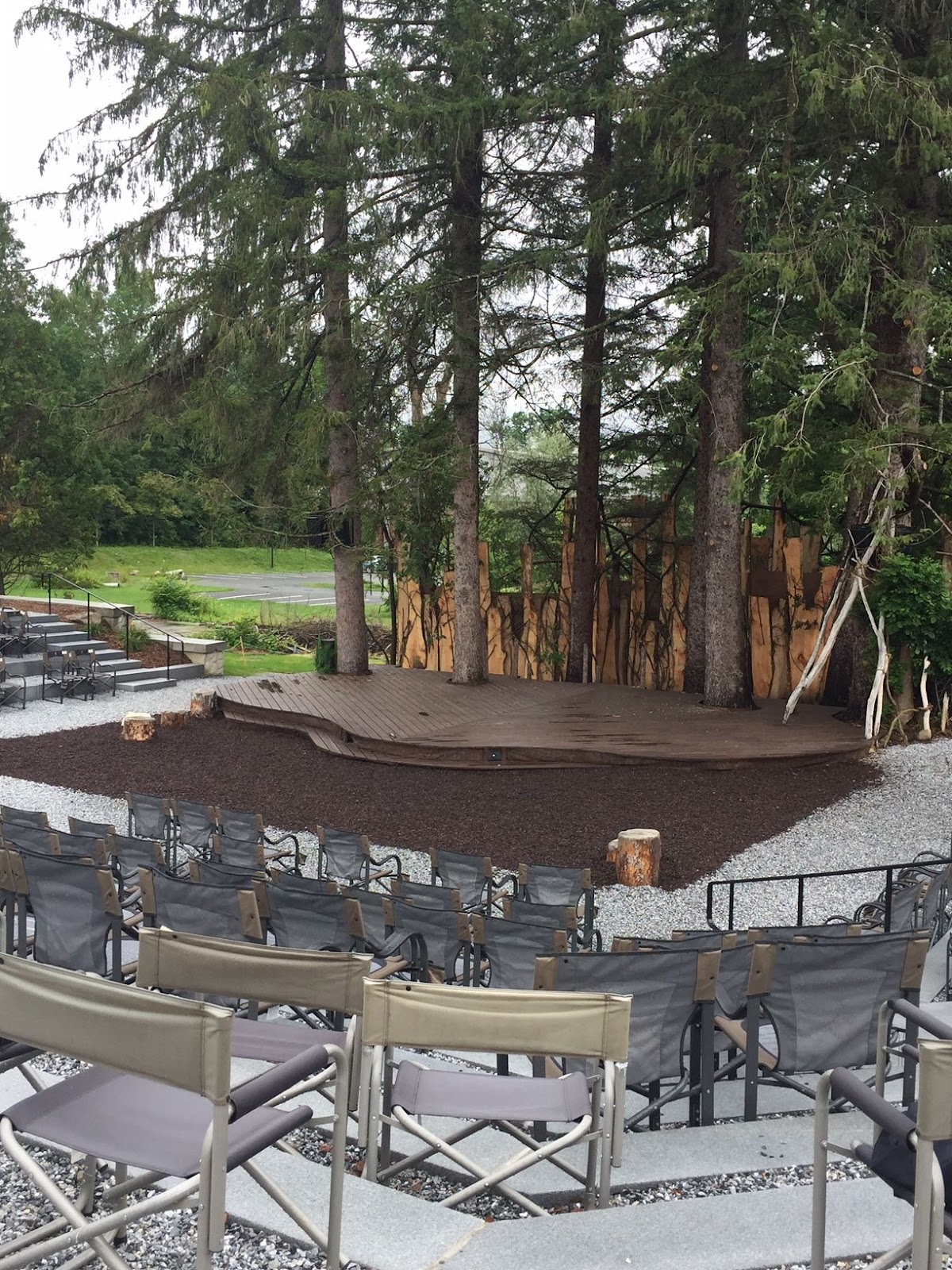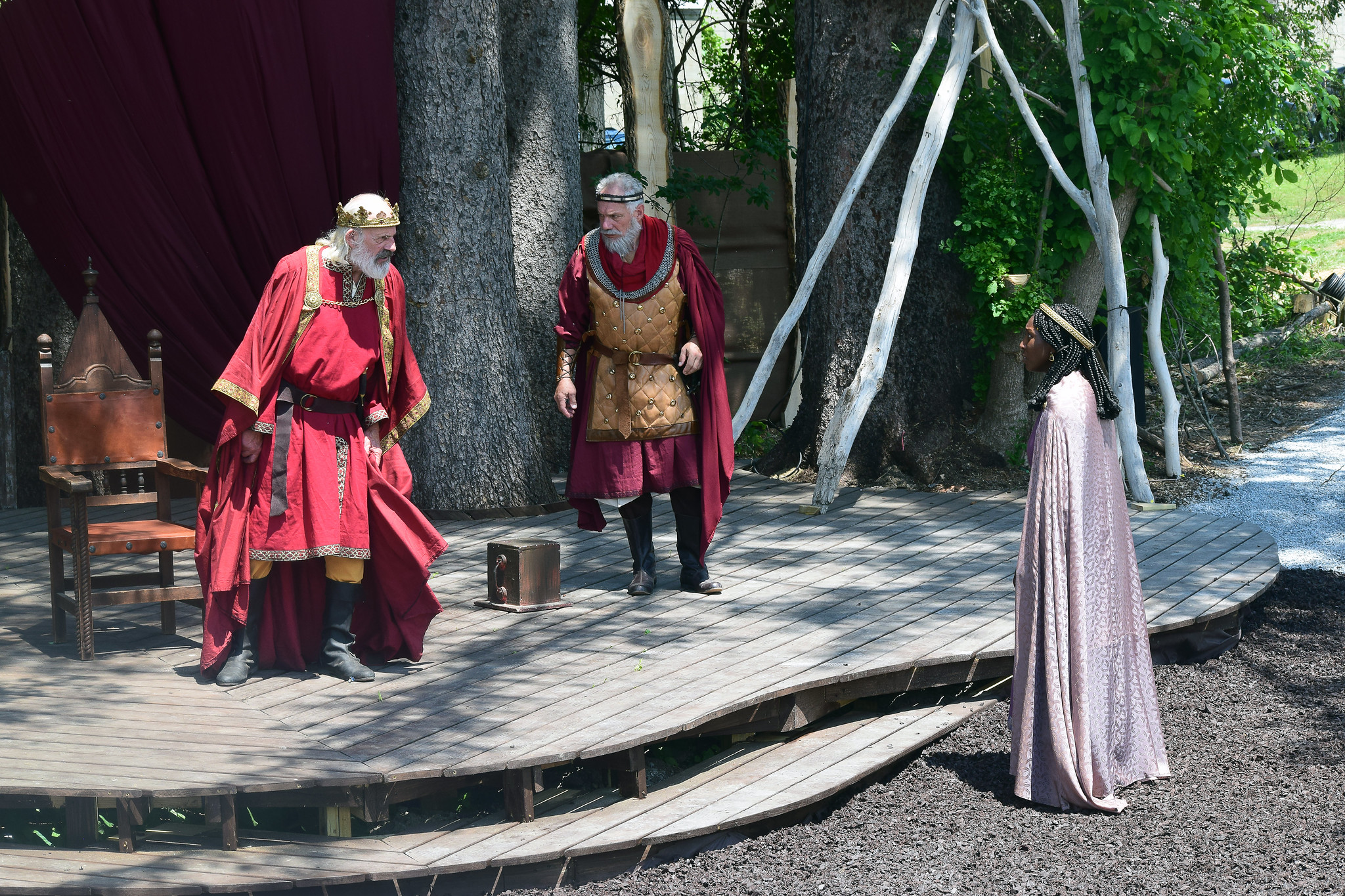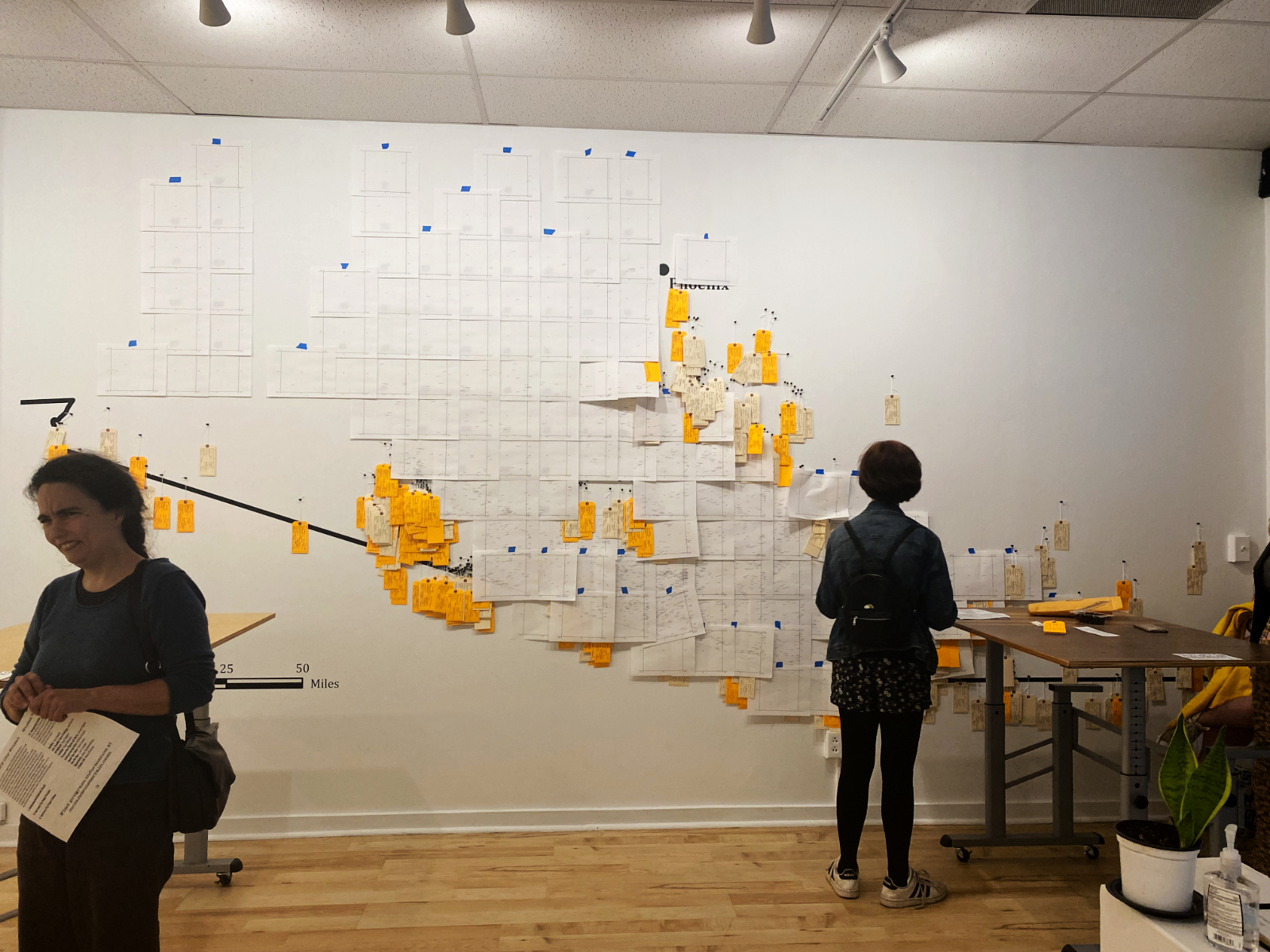The roster of definitive Lears includes some of the greatest names in British and American stage from the past century: Orson Welles, Laurence Olivier, James Earl Jones, John Gielgud, Ian McKellen, Anthony Hopkins and Geoffrey Rush, among others. The inimitable Christopher Lloyd has applied for membership to this group by way of a summer residency at Shakespeare & Company.
As Glass readers will most certainly recall, Christopher Lloyd permeated the cultural consciousness of the late 20th century with iconic roles in a network sitcom (Reverend Jim Ignatowski in Taxi) and a Hollywood series (“Doc” Emmett Brown in THE Back to the Future trilogy). This century has seen Lloyd in a plethora of roles on the small and large screen, including two feature films currently in post-production. He has even been embraced by millennials via meme culture, giving “Great Scott” a much longer half life than it probably deserves.

Christopher Lloyd’s stage credits, on the other hand, have been lean in the last twenty years. Early on in his career, Lloyd is said to have performed in three different productions of King Lear. Shakespeare & Company’s online Playbill supplements does not disclose the roles or companies. Might he himself have (literally) played the Fool back in the day?
In a telling twist of casting, The Fool to this Lear is played by none other than Allyn Burrows, Artistic Director at Shakespeare & Company. At the king’s side, The Fool provides acerbic commentary on his fading liege’s most unseemly behaviors. Can Burrows have foreseen just how much he and his fellow pros would need to do to support Lloyd’s epic turn in summer Shakespeare? (Among half a dozen reviews I have read, The Wall Street Journal found this King compelling.)
Pivoting Out, Pivoting In
As luck would have it, I happened to cross paths with Burrows shortly before the show. Wearing rustic chinos and a snap-back cap, the A.D. was walking his dog Eliza around the grounds and showing the vacant New Spruce Theatre to a playgoer. Burrows continues to be excited about the opportunities provided by this 500-seat outdoor venue, which represents something of a culmination of his own vision for the Company. “To gather together again at this very special moment in history for the company… on the grounds here at Shakespeare & Company,” he reflects in a recent press release, “has been nothing short of awe-inspiring.”
On a stormy Sunday, however, at a matinee making up for rainouts in the previous week, Burrows led the Company & a small but appreciative house back into the well-known environs of the Tina Packer Theater. We would “pivot inside,” he assured forty or fifty of us, to enjoy a “campfire version” of Shakespeare’s iconic tragedy. (Burrows delivered these opening remarks clad in a grey business suit, which served as a sort of sartorial transitional phase on the way to the Fool’s motley garb.)
This July in the Berkshires has seen some challenging weather, to be sure, which Shakespeare & Company cannot have predicted nor controlled. They are fortunate to have the capacity for indoor productions, as he mentioned in his introduction. And there is no doubt that they will mount many great productions in the New Spruce in coming summers.
In a weird way, the indoor space may suit Lloyd’s less robust stage presence better than an outdoor venue would. There was a noticeable difference in projection between the King’s speech and that of the lesser characters in the play. Jonathan Epstein as the Earl of Kent and Bryce Michael Wood and Nome SiDone as Gloucester’s sons (the former a scheming bastard and the latter a legitimate naif) were among the strongest performers of this excellent Shakespeare & Company ensemble. Burrows, too, delighted with his zippy repartee and cavalier strumming of a guitar.
Universal Language or Contextual Relevance?

In her Director’s Note, Company veteran Nicole Ricciardi’s situates Shakespeare’s tragedy firmly in the current context. Ricciardi positions Lear, “Which many believe to be the most powerful and poignant exploration of humanity ever written,” as a natural fit for this summer. She notes parallels between the plague of 1605 and the COVID crisis, the instability in early Modern Britain and the political unrest of the past year.
Those parallels were indeed easy to recognize within the Bard’s language and characterization. When the treachery of his sons begins to become visible (he has the scheming and injured parties reversed), Gloucester bemoans what he has seen: “We have seen the best of our time: machinations, hollowness, treachery, and all ruinous disorders” one could not help but think of recent machinations of ruinous regimes in our own capital.
For this critic, however, and perhaps for some of the more seasoned playgoers, the linked decline of the great king’s fortunes and faculties hit closer to home. Anyone who has seen an aged loved one on the long, inexorable decline at life’s end will hear the aptness in Lear’s own diagnosis: “Infirmity doth still neglect all office / whereto our health is bound; we are not ourselves / when nature, being oppress’d, commands the mind / to suffer with the body.” The inextricable suffering of mind and body seldom takes place in isolation. Those dealing with the ravages of old age need not be former rulers to rue the losses they have sustained, nor do they have to have cut out or cut down those who would do well by them to cause unintended suffering to friends and family.
In Some Rank of Praise
At a crucial moment, Lear finds a backhand compliment for one daughter in relation to another: “Not being the worst stands in some rank of praise.” In other words, there is some merit in being better than another, even if one rates second-to-last place.
At curtain’s close, Christopher Lloyd actually delivered a reasonable facsimile of a Shakespearian tragedian. Lloyd is now 82 years old; given the fact that he was inked to assume the role last summer, the actor was likely in a different space when he and Burrows began to consider the possibilities. What might have made more sense a few years back seemed at times to be beyond his grasp in summer 2021. His biggest challenge may just be beyond his control, in any event: Christopher Lloyd is the central figure among a cast whose members routinely reveal a vibrancy on the stage and a facility with language beyond the King’s performance. This is what they do at Shakespeare & Company, not on a lark or a dare but on a daily basis for many productions over many seasons.
We have come to expect actors at the very height of their powers in the role of Lear, whose howling rage raises pity and fear in all those who observe his precipitous decline. But here’s the thing about Christopher Lloyd as King Lear in summer 2021. Perhaps without meaning to, Lloyd and Ricciardi and Burrows and Company have enacted a performance that is more true to life than fit for the stage, whether indoors or out. They have turned the proverbial spotlight fully on a man who has been great in the past but is no longer able to enact that greatness and given us a Lear that hints as much toward the ignominy of aging as toward the immortality of Shakespeare. This show is not for the faint of heart, to be sure, but the past 18 months have taught us to expect everything to be a bit harder than it might have been in the past.


















You must be logged in to post a comment.